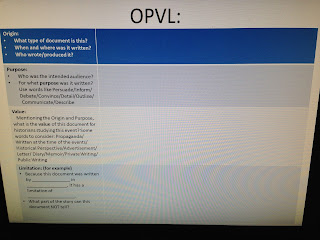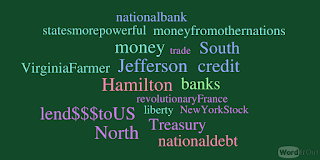Helping Students Overcome Obstacles
One of my Student Historians, I'll call her Sarah, hasn't had success selecting a person that took a stand in history for her National History Day project. Sarah is a great student but her topic choices, while extremely admirable, aren't helping her find success and momentum. She's wanted to focus on her grandfather's military experience but it seems she isn't finding primary sources like we both thought she would. I had a heart-to-heart with her yesterday and now realize that she really wants to focus on this relative because it's meaningful to her but also to her family . She wants to honor her relative but that isn't giving her momentum with her project because military history isn't her passion. I had her take a step back and asked her to fill out a questionnaire I've used with my Genius Hour students (this questionnaire leads students to focus on their passions). Through reflection, Sarah realized that she should focus on a ballet danc...







